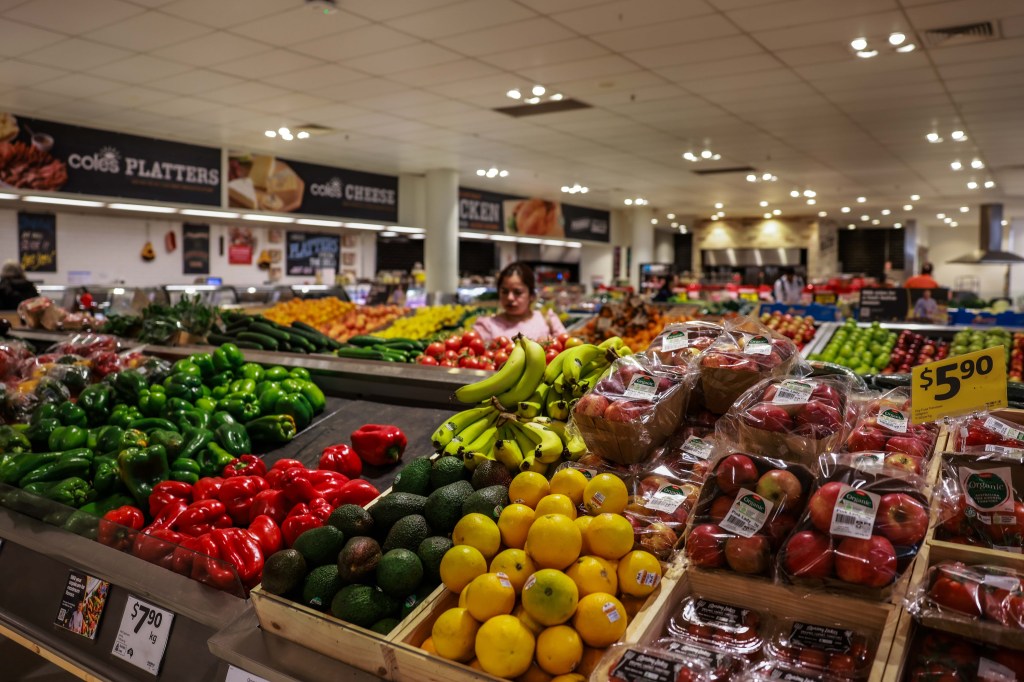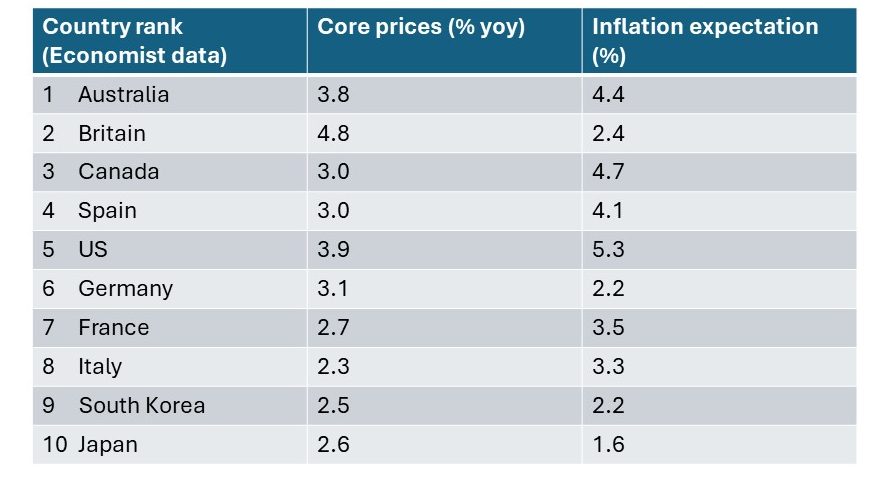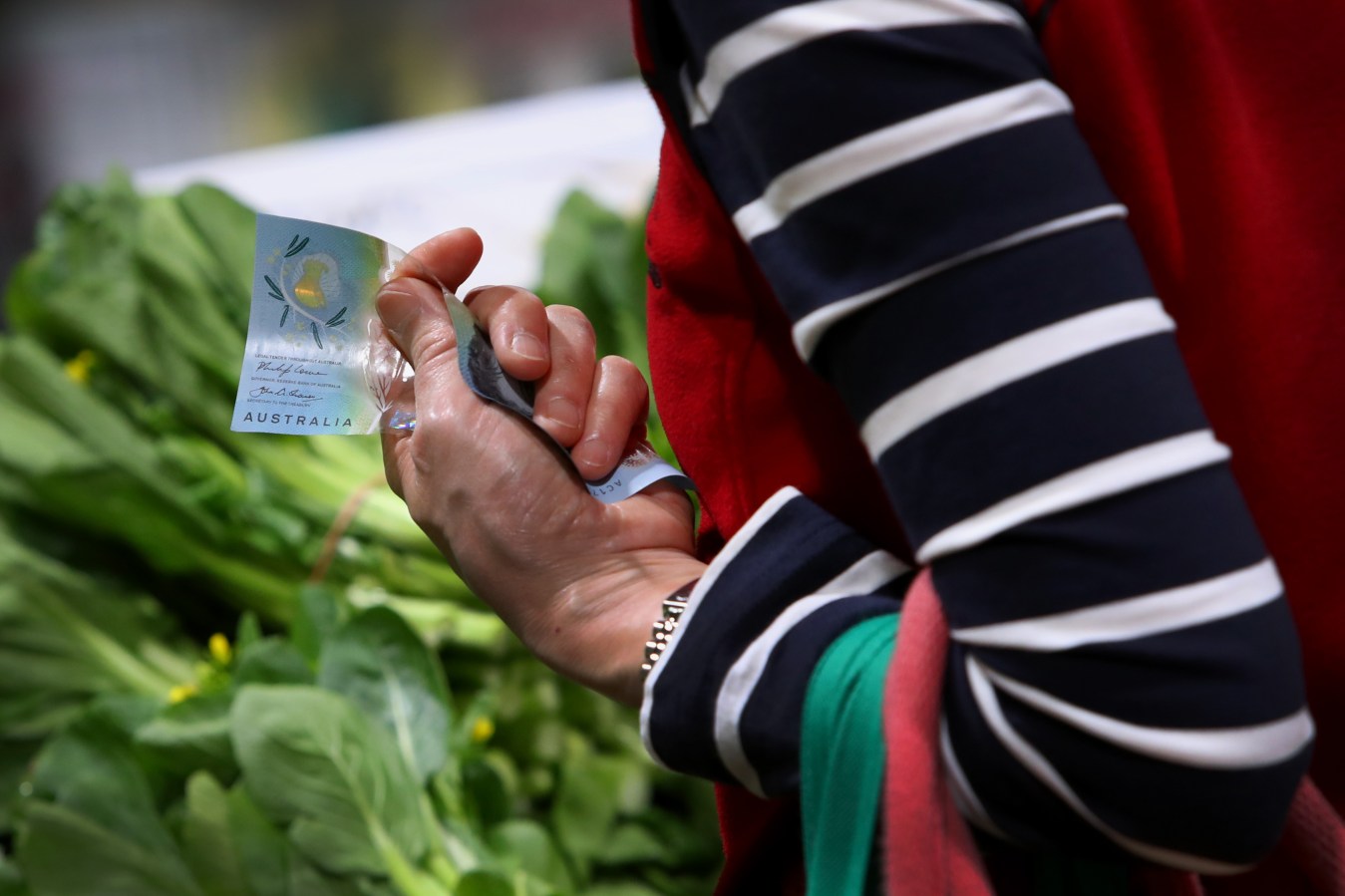The Economist released a list of 10 developed countries suffering from entrenched inflation. Australia is ranked number 1 and is projected to be the last to escape.

The US Labor Department recently released data revealing a 3.5% year-over-year increase in the consumer price index. While the figures have declined from the peak of 9% in 2022, inflation is still above the Federal Reserve’s target rate of 2%, suggesting it may be some time until the US escapes the clutches of inflation.
New data released by The Economist points to the same being true for Australia.
In fact, the data suggests Australia will be the last of 10 developed countries to escape inflation. Citizens in Britain, Canada, Spain, the US, Germany, France, Italy, South Korea, and Japan are all expected to experience reduced inflation sooner than Australians.
The study assesses five indicators to calculate the rankings: core inflation; unit labour costs; inflation dispersion; expectations; and Google-searches.
“Countries in the EU and Asia perform well,” the Economist discloses. “In the English-speaking world, inflation is taking longer to fade. Australia tops the ranking. Britain and Canada are not far behind. America is doing better, but even there inflation remains entrenched.”
These countries are referred to as the ‘Anglosphere.’ It is that subsection of the global population that is expected to have entrenched inflation for the longest period of time.
“A few factors may explain the differences. One is fiscal stimulus during Covid-19, which was 40% larger in the Anglosphere than elsewhere. The boost to demand is still visible in “core” inflation data, which strips out items such as energy, and indicates underlying inflationary pressure. British core inflation is close to 5%,” the Economist states.
Australia has the highest inflation dispersion – the share of consumer prices rising by more than 2% year-over-year – of all the countries assessed. Another factor impacting the high inflationary environment in the Anglosphere is immigration.
Entrenched inflation: ranking of countries

“The rich world has experienced an immigration boom, with a large share of the new arrivals going to English-speaking countries,” reads the article that references the ‘Curse of the Anglosphere.’ “Last year, Australia, Britain and Canada broke net migration records.”
The Reserve Bank of Australia announced on 19 March that the cash rate target would not change from 4.35%.
“While there are encouraging signs that inflation is moderating, the economic outlook remains uncertain,” the RBA statement on March 19 reads.
“The central forecasts are for inflation to return to the target range of 2–3 per cent in 2025, and to the midpoint in 2026. Domestically, there are uncertainties regarding the lags in the effect of monetary policy and how firms’ pricing decisions and wages will respond to the slower growth in the economy at a time of excess demand, and while the labour market remains tight.”
RBA Governor Michele Bullock announced that the cash rate target was 4.35% in November 2023. It has not moved since. This week’s consumer price index news from the US Labor Department suggests that the RBA cash rate will continue to hold steady through June and beyond.
“Expectations have collapsed for Federal Reserve rate cuts in 2024 after the third hotter-than-expected inflation report in a row,” says Tom Lauricella the chief markets editor at Morningstar.
“Expectations for the number of rate cuts in 2024 have also changed dramatically. Coming into the year, investors were anticipating five cuts starting in March. Bond traders still see a more than 30% chance that only one cut will be in the offering in 2024.”
Look back on the week that was with hand-picked articles from Australia and around the world. Sign up to the Forbes Australia newsletter here or become a member here.


